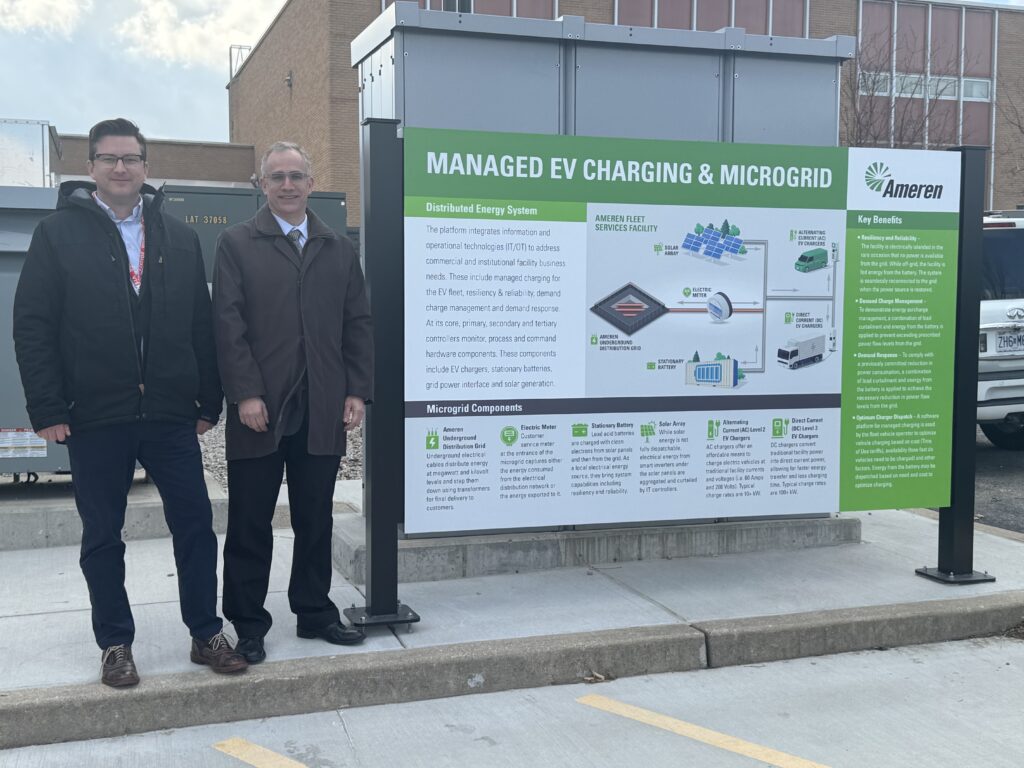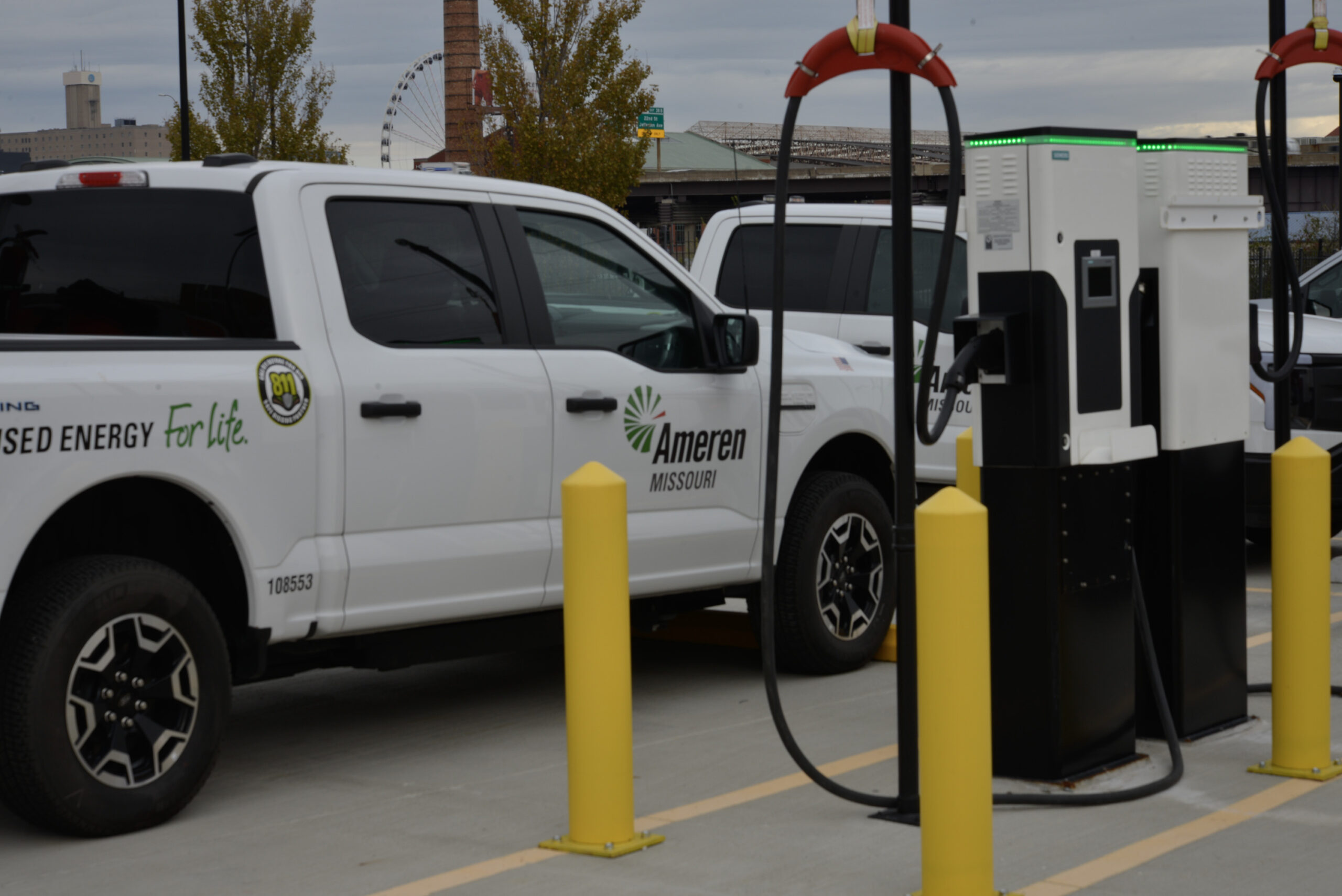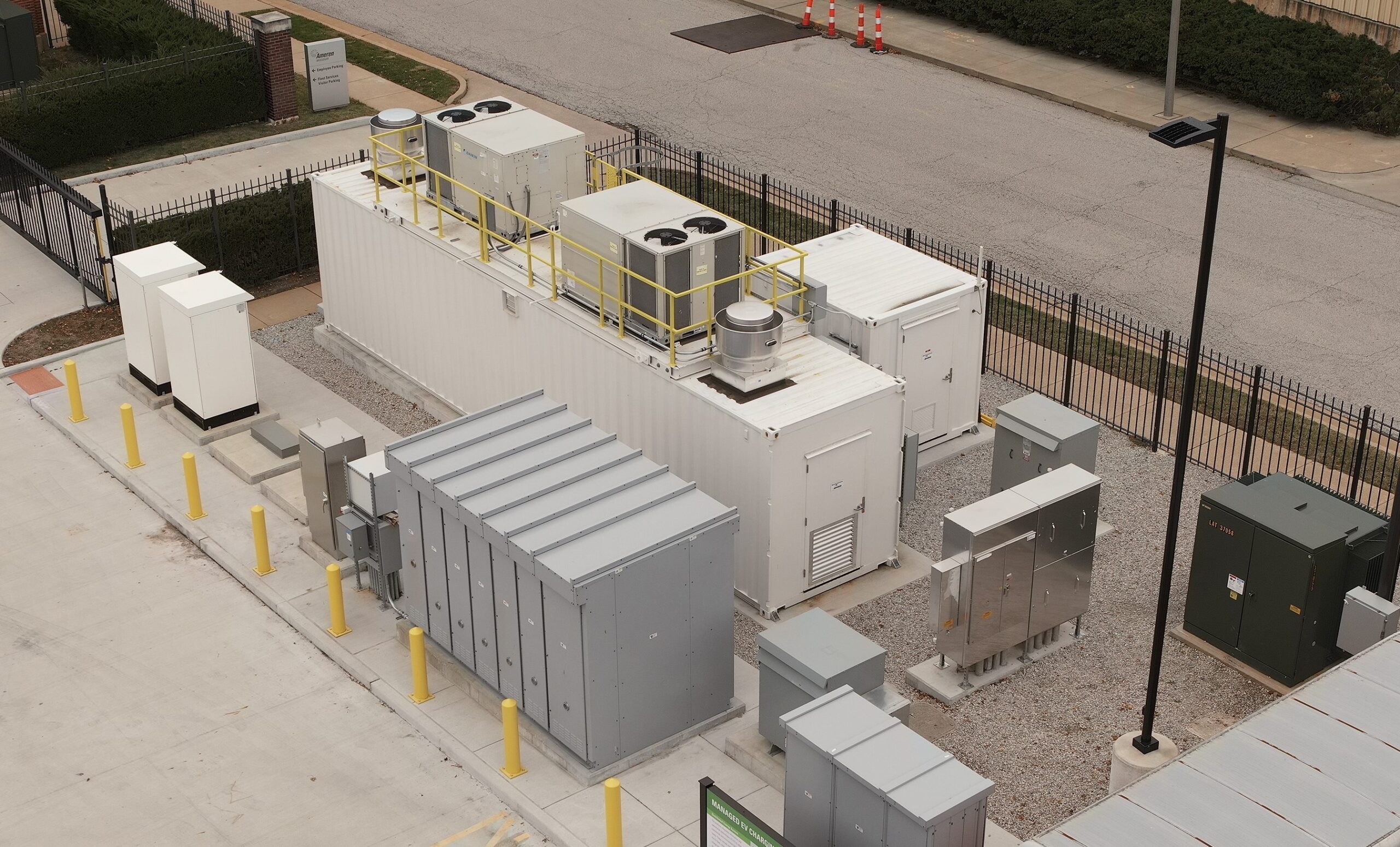
New EV fast-charging station uses advanced lead batteries that feature efficiency and reliability
Advanced lead battery technology is key part of the “smart grid” technology that is increasingly necessary to supporting the modern economy. Proof of this value proposition comes from a first-of-its-kind EV fast charging station that deploys GS Yuasa batteries in a new and cost-effective way.
In December, power company Ameren officially commissioned a first-of-its-kind managed EV charging and microgrid platform at its St. Louis campus to help power its fleet vehicles. Stationary batteries provided by energy storage leader GS Yuasa along with planned solar panels provide critical energy storage support to a 1 megawatt hour microgrid on the site.
“Advanced technologies with longer life cycles are enabling lead batteries to compete commercially with other battery types in energy storage projects,” said Bill Moll, president of GS Yuasa Energy Solutions. “This innovative EV fast-charging facility by Ameren clearly illustrates the value proposition of advanced lead battery technology, and GS Yuasa is proud to support continued innovation in domestic energy infrastructure projects like this one.”

By some estimates, the U.S. will require 500,000 public charging points for electric vehicles, with 100,000 fast chargers. That’s almost 5X the footprint of current electric vehicle charging nationwide. Adding to the challenge is the increased use of alternative energy power sources such as wind and solar, which often provide intermittent power supplies that don’t align with demand.
Innovative energy storage systems like the project announced by Ameren are a critical part of the evolution of the U.S. grid thanks to complex or higher-load applications like EV fast-charging.
As a utility operator, Ameren is uniquely positioned to support next-gen battery installations and smart-grid technology like the one planned for St. Louis, and to lead by example.
“This groundbreaking project has far-reaching implications for economic development and industry advancement,” said Alex Rojas, director of innovation implementation and strategy at Ameren Services. “By demonstrating the feasibility and benefits of electrifying fleet vehicles, Ameren aims to inspire commercial and institutional fleet vehicle owners and operators to embrace cleaner, more sustainable transportation solutions. The system’s ability to address relevant business and operational needs, such as fire safety, energy resiliency, demand charge management and demand response offers a compelling value proposition for these organizations.”
Ameren’s ability to store power during times of abundant generation and then deploy this power later is a key element of this value proposition. Broader installation and maintenance costs are also a factor, as GS Yuasa’s advanced lead batteries aim to provide a lower total cost of ownership than alternatives. Other batteries may require higher up-front costs or long-term risks over their lifecycle.
The real-world business case for advanced lead batteries proves the importance of end-users putting their applications first when selecting an energy storage solution, said Roger Miksad, President and Executive Director of Battery Council International.

“It’s not practical or realistic to think that one kind of battery can rise to every energy storage challenge that the future holds. Instead, organizations focus on selecting the right battery for the right application,” said Miksad. “It’s inspiring to see projects like the one at Ameren in St. Louis that are looking outside the box and finding new ways to effectively deploy advanced lead batteries in cost-effective ways.”
Battery Council International is the leading trade association for the energy storage industry, representing more than 120 battery manufacturers, recyclers, raw materials suppliers, and support vendors. In 2024, BCI was awarded $5 million by the U.S. Department of Energy to establish the Consortium for Lead Battery Leadership in Long Duration Energy Storage.
In layman’s terms, long duration energy storage (LDES) involves a large-scale system that can deliver substantial and reliable electricity 10 or more uninterrupted hours. For grid-scale applications, particularly those that rely on intermittent alternative energy sources like solar or wind power, LDES is a key factor.
The Consortium for Lead Battery Leadership will focus its initial work on cycle life, capacity utilization, crystallization behavior, and technoeconomic analysis and modeling. The DOE-sponsored effort is a partnership between BCI, eight U.S. lead battery manufacturers, and three national laboratories. Additionally, the Consortium for Battery Innovation (CBI), which will manage the program and technical direction; CBI also collaborated with Ameren and GS Yuasa on the St. Louis fast-charging project.

Additionally, BCI continues to look at other LDES innovations in support of meeting future U.S. energy needs. That includes BCI’s Flow Battery Industry Group, which is comprised of leading energy storage innovators such as Stryten Energy and Invinity Energy Systems, among others.
“A fast-moving modern economy paired with an aging power grid means the stakes are very high,” said BCI President Roger Miksad. “Every battery chemistry has a role to play in improving the energy storage potential of the U.S. power grid. That includes lead batteries to flow batteries to lithium and beyond.”
“This is potentially game-changing for EV charging in the United States,” said CBI’s Director of Technology Dr. Matt Raiford. “The system is easy to replicate, will use renewable energy and adopts the latest battery and battery management technologies to provide efficient EV charging. This is a sustainable and intelligent charging system. It can be housed virtually anywhere, which opens up the ability to extend efficient and cost-effective charging facilities in both rural and city locations.”


